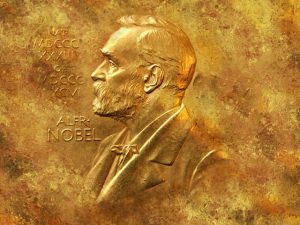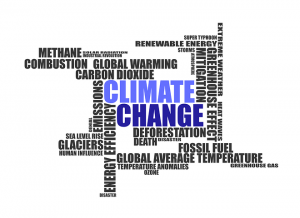Monday
Community ArticlesThe Time to get it Right
Initiating the climate change conversation in Nova Scotia: A Retreat at the Thinkers Lodge, Pugwash, Nova Scotia on the 60th Anniversary of the Inaugural Pugwash Conference on Nuclear Disarmament, Co-Recipient of the 1995 Nobel Peace Prize
By Shastri Christine Heming and Karalee Clark
 The Statement: We know there are no more chances. It is not going away, and today is the time to get it right in dealing with the climate crisis. Our world lives with it for the rest of our history, just as we have lived with the 20th century legacy of nuclear war. Our shared duty now, as one people, is to protect and repair our Earth, even as we prepare ourselves for its future unknowns.
The Statement: We know there are no more chances. It is not going away, and today is the time to get it right in dealing with the climate crisis. Our world lives with it for the rest of our history, just as we have lived with the 20th century legacy of nuclear war. Our shared duty now, as one people, is to protect and repair our Earth, even as we prepare ourselves for its future unknowns.
Armed with this conviction, 60 years after the inaugural Pugwash Thinkers Retreat on nuclear disarmament, 24 global and regional thinkers, representing all aspects of community life, gathered for two and a half days of intense, intentional and focused conversation on global warming, the greatest threat facing humankind. Believing local action the best path, the retreat’s mission was to move from conversation to ‘doing’ by generating a roadmap to develop community-based action plans, with drawdown potential, that will enable us to face and manage life in a very different world.
The diversity of participants—First Nations and Shambhala representatives, scientists, economists, municipal councillors, artists, the Project Draw Down Director, and others—powered a cross-pollination of thoughts and ideas, fostering charged and difficult conversations. Without shying away from the hard reality of a changed and changing world, the group identified and articulated global warming’s cascading impacts on small, rural, and coastal communities.
A Potent Legacy
 Entering the Thinkers Lodge, one steps back in time. The hearts and minds of those renowned thinkers – scientists from both sides of the Iron Curtain – who assembled there in 1957 can still be felt. The Medal room, in which we held our gathering, displays the 1995 Nobel Peace Prize awarded jointly to the Pugwash Conference on Science and World Affairs and Joseph Rotblat, its spiritual leader. Rotblat was the only nuclear scientist to leave the Manhattan Project, the U.S. government’s secret program to build the first atomic bomb, on moral grounds.
Entering the Thinkers Lodge, one steps back in time. The hearts and minds of those renowned thinkers – scientists from both sides of the Iron Curtain – who assembled there in 1957 can still be felt. The Medal room, in which we held our gathering, displays the 1995 Nobel Peace Prize awarded jointly to the Pugwash Conference on Science and World Affairs and Joseph Rotblat, its spiritual leader. Rotblat was the only nuclear scientist to leave the Manhattan Project, the U.S. government’s secret program to build the first atomic bomb, on moral grounds.
The 1957 conference was a response to the 1955 Russell-Einstein Manifesto, which marked the beginning of the campaign for nuclear disarmament by prominent members of the scientific community. The Manifesto called for scientists to assemble “to appraise the perils that have arisen as a result of the development of weapons of mass destruction;” to assemble “not as members of this or that nation, continent, or creed, but as human beings.” It concluded with this statement: “We appeal, as human beings, to human beings. Remember your humanity, and forget the rest. If you can do so, the way lies open to a new Paradise; if you cannot, there lies before you the risk of universal death.”
The Manifesto was signed by eleven prominent thinkers, among them Albert Einstein, Bertrand Russell, Linus Pauling, and Joseph Rotblat. It was here, on the shoulders of these courageous leaders, that we held our retreat on climate change and the human prospect.
An Opportunity
 The retreat came about when John Eaton, great grandson of Cyrus Eaton (who with his wife Anne hosted the first 1957 Pugwash Conference), contacted Shambhalian Bob Cervelli, Executive Director of the Centre for Local Prosperity. John offered the Thinkers Lodge as the place to host a conference on another urgent threat to humankind: global warming. It was an offer the Centre could not refuse.
The retreat came about when John Eaton, great grandson of Cyrus Eaton (who with his wife Anne hosted the first 1957 Pugwash Conference), contacted Shambhalian Bob Cervelli, Executive Director of the Centre for Local Prosperity. John offered the Thinkers Lodge as the place to host a conference on another urgent threat to humankind: global warming. It was an offer the Centre could not refuse.
Time was short and there was much to be done: How to create the right circumstances that would honour the history and vision of the Thinkers Lodge? As the planning process proceeded, the first expedition to the Lodge took place. It was an emotional journey for the Centre, and it became clear that we would need to open our hearts and go deep to find a way forward. The conference became a closed retreat, an opportunity for those invited to speak freely, human being to human being, with a focus on solutions that were real and feasible.
The Four Threads
 The retreat was a blend of science, art, and the wisdom traditions. A prominent climate scientist warned that because of lag time, the next 10 years will see further global warming even if green house gas (GHG) emissions were to completely stop. This was sobering.
The retreat was a blend of science, art, and the wisdom traditions. A prominent climate scientist warned that because of lag time, the next 10 years will see further global warming even if green house gas (GHG) emissions were to completely stop. This was sobering.
We began with four threads: (1) the science and solutions of Project Drawdown – a comprehensive plan to reverse global warming by pulling down carbon from the air and reducing concentrations; (2) Nova Scotia’s Municipal Climate Change Action Plans outlining the impacts to our coastal communities; (3) the impacts on rural economies and the role of municipal governments; and (4) the wisdom traditions of Shambhala and First Nations.
Remember your humanity and forget the rest
The first day was edgy; we were getting to know one another and the task seemed onerous if not impossible. On the second morning we were invited to pause and reflect – how were we feeling and where did we want to go next? We broke into groups of four; the energy began to shift. Through this sharing, new threads began to emerge – a way forward. We did not cover all of the critical issues, but we had a number of good starting points. From there further conversations focused on barriers and opportunities–projects that are already making a difference and others that could be implemented at scale. We wanted to be bold, and envisioned Nova Scotia as a leader in reducing GHG emissions while creating a more humane and equal society. We embraced the admonition of Elder Albert Marshall, Eskasoni First Nation: “We must take personal responsibility. We must bring balance and harmony to this earth.”
The Next Step
Our next step is to share our vision and action plan with others. We are preparing a roadmap and documentary. The vision is positive: we do have the data, technology, and platforms we need to engage and create positive change. However, this transformation depends on building awareness, going deep, and opening our hearts.
As Shambhalians we need to reflect individually and collectively on our choices and decisions. Are we helping to heal the earth, protect all its life forms, and create a better world for all humanity? If we are not creating a better world, a more enlightened world, what are we creating?
For more details see: centreforlocalprosperity.ca, or www.projectdrawdown.org
Christine Heming serves as a Board Member of the Centre for Local Prosperity. She lives in the Annapolis Valley, Nova Scotia, with her husband Gregory Heming, an ecologist and municipal councillor. Christine holds a Ph.D. in speech science and pathology, and for nine years was on the faculty of Dalhousie University, and later the staff of the Annapolis Valley Regional School Board. Now retired, she devotes her time to promoting the principles of Shambhala as a Shastri, or senior teacher. Fostering genuine communication has been a major part of her life’s work. She has a daughter, Carolyn, an artist and advocate for persons with special needs. She is also a proud grandmother.
Karalee Clerk is a writer and marketing professional in Halifax, Nova Scotia. A graduate of the University of Waterloo Rhetoric and Professional Writing Program and the University of King’s College MFA Creative Nonfiction program, she has 25+ years in the marketing and communication field and taught for six years as a part-time and sessional college professor.




